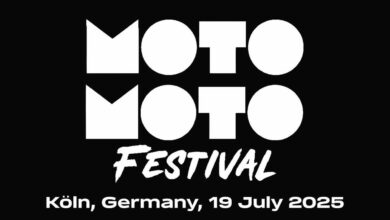Influencer Marketing in Zimbabwe: Where Entertainment Meets Business

Influencer marketing in Zimbabwe, where entertainment meets business is not merely a fad—it’s a revolution reshaping how brands reach consumers. Over the past few years, Zimbabwean influencers have deftly blended creativity with commerce, turning everyday content into compelling brand narratives. Furthermore, this exploration delves into how influencers promote products and services, uncovers standout campaigns and reveals how consumer behaviour has transformed.
Shaping Trends: Influencer Marketing Zimbabwe Style
In Zimbabwe today, influencer marketing taps into social media’s immersive appeal. Social media celebrities like Kudzai Violet Gwara and Tembalami authentically showcase local products and services. These two have partnered with WestProp as they company’s brand ambassadors. This strategy fosters trust, unlike conventional ads, and often boosts brand affinity.
Additionally, market reports show influencer advertising spending in Zimbabwe reached US $2.09 million in 2024, projected to hit US $3 million by 2029 statista.com. Brands are using influencer marketing in Zimbabwe not only to drive sales but also to cultivate cultural relevance.
Micro‑Influencers Driving Impact
Moreover, a distinctive trend in Zimbabwe is the rise of micro‑influencers as part of the influencer‑marketing landscape. These niche creators, with 1,000–10,000 followers, often boast more engaged audiences. AFRLUENCER notes that micro‑influencers generate deeper connections and credible messaging. One case study from Point Black’s promotion of Old Mutual Amazing Voices involved influencers hosting digital watch parties and driving votes—exceeding engagement goals even during COVID‑19 lockdowns.
Voyeuristic Appeal: Entertainment Meets Commerce
When entertainment meets business, influencer content blends fun with product placement. Madam Boss, for example, uses her comedic platform to review beverages, telecom offers, and airlines such as RwandAir and Net*One. This seamless integration keeps audiences hooked—then nudges them toward purchase.
Similarly, tourism stakeholders are exploring inviting global influencers to Zimbabwe, hoping that visually rich travelogues ignite interest in local destinations sundaynews.co.zw. Thus, influencer marketing in Zimbabwe becomes a strategic tool to reshape perceptions and boost local industries.
Proven Campaigns Transforming Behaviour
Also, academic research confirms these shifts. A study on Instagram influencers and youth in Harare showed that followers are more likely to buy after seeing authentic recommendations. Moreover, Edgars Zimbabwe reported an 8 percent increase in sales attributed to digital and influencer campaigns, along with 15 percent organic audience growth medium.com. These figures reflect tangible returns on influencer investment.
Another campaign by Kilimo Hai leveraged 16 health‑food influencers on TikTok and Instagram, achieving high views, interaction, and awareness wowzi-ke.webflow.io. These successes reveal how carefully coordinated influencer marketing in Zimbabwe can shift consumer behaviour at scale.
Lessons Learned and Path Forward
Several strategies emerge from these stories. Firstly, authenticity is vital. Brands must partner with influencers who genuinely believe in the product. Secondly, micro‑influencers deliver niche impact at lower cost. Thirdly, clear metrics—like engagement, conversions and impressions—are essential to validate ROI, as Edgars demonstrated. Finally, storytelling through entertaining formats drives wider reach.
However, challenges remain. Zimbabwe’s digital divide means rural audiences may be excluded, and influencer credibility can be compromised by opaque disclosures maz.co.zw. Therefore, to navigate this, marketers should vet collaborations, align values and require transparent sponsorship disclosure.
Conclusion
Influencer marketing in Zimbabwe where entertainment meets business is evolving into a mature, strategic force. With compelling campaigns, measurable results, and expanding investments, influencers are bridging commerce and entertainment. Transitioning audiences from viewers into buyers, this fusion is rewriting Zimbabwe’s marketing playbook.





